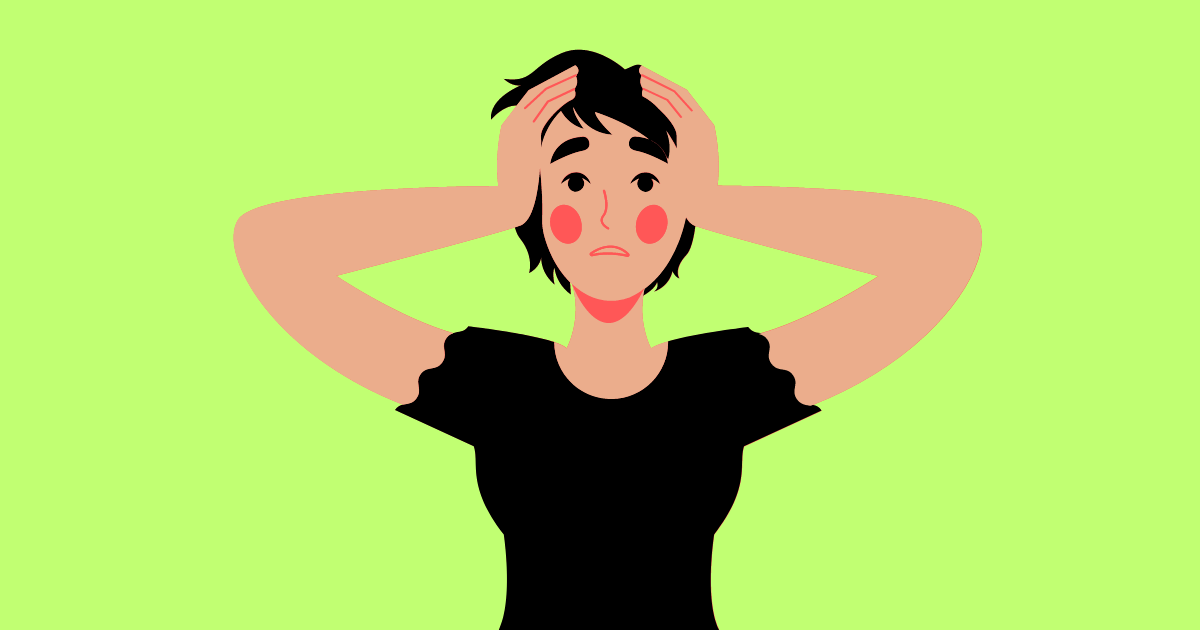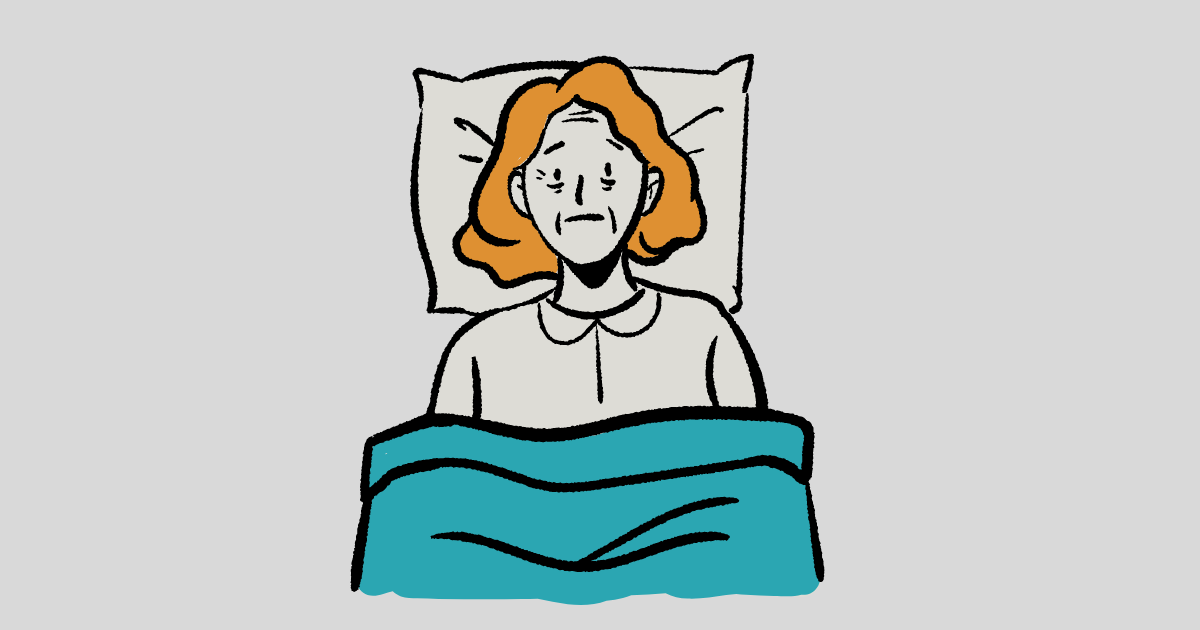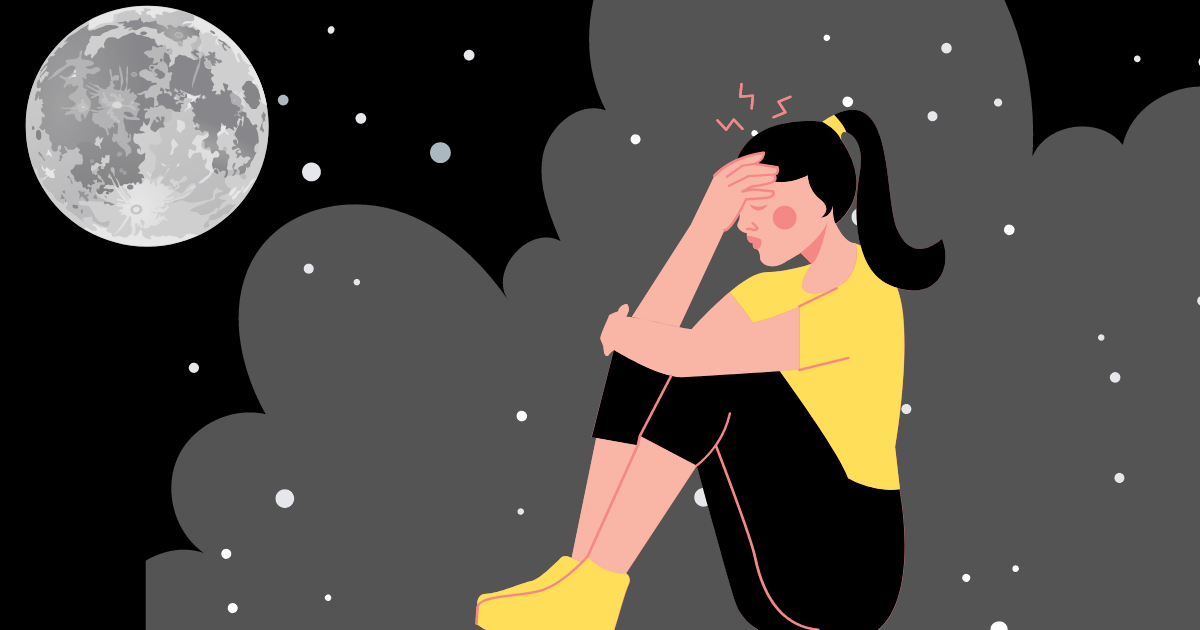Mood swings can be challenging to manage, affecting your daily life and relationships. While it’s natural to experience fluctuations in mood, frequent and intense mood swings might require a more focused approach. Thankfully, there are several natural strategies that can help stabilize your mood and improve your overall well-being. In this post, we’ll explore nine effective ways to deal with mood swings naturally.
Table of Contents
What Is Mood Swings
Mood swings refer to rapid and often extreme fluctuations in one’s emotional state. They can range from feelings of happiness and elation to sadness, anger, or irritability within a short period. Mood swings are common and can be triggered by various factors, including:
- Hormonal Changes: Fluctuations in hormone levels, such as those experienced during puberty, menstruation, pregnancy, and menopause, can lead to mood swings.
- Mental Health Disorders: Conditions like bipolar disorder, depression, and anxiety can cause significant mood changes.
- Stress and Lifestyle Factors: High levels of stress, poor sleep, unhealthy diet, lack of exercise, and substance abuse can contribute to mood swings.
- Medications: Certain medications, including those for mental health conditions, can have side effects that impact mood stability.
- Physical Health Conditions: Chronic illnesses, neurological disorders, and hormonal imbalances (such as thyroid problems) can affect mood.
Managing mood swings often involves identifying and addressing the underlying causes. Strategies might include maintaining a healthy lifestyle, seeking therapy or counseling, using medications as prescribed by a healthcare provider, and practicing stress-reduction techniques like mindfulness and relaxation exercises. If mood swings are severe or interfere with daily life, it’s important to seek professional help.
Causes of Mood Swings
Mood swings are sudden and extreme changes in a person’s emotional state. They can occur for various reasons and may be triggered by both internal and external factors. Understanding the causes of mood swings can help in managing them effectively. Here are some common causes:
Hormonal Changes
Hormonal fluctuations are a significant cause of mood swings. Changes in hormone levels can affect neurotransmitter activity in the brain, leading to emotional instability. Common instances include:
- Menstruation: Many women experience mood swings before and during their menstrual period due to hormonal changes.
- Pregnancy: Hormonal shifts during pregnancy can lead to mood swings.
- Menopause: The transition into menopause can cause significant hormonal changes, resulting in mood swings.
Mental Health Conditions
Mood swings are often associated with various mental health conditions, including:
- Bipolar Disorder: Characterized by extreme mood swings ranging from manic highs to depressive lows.
- Depression: This can cause significant fluctuations in mood, ranging from severe sadness to irritability.
- Anxiety Disorders: Individuals with anxiety may experience rapid mood changes in response to stress or perceived threats.
Stress and Anxiety
Chronic stress and anxiety can lead to mood swings. The body’s response to stress involves the release of cortisol, a stress hormone that can affect mood. Prolonged exposure to stress can deplete the body’s ability to manage emotions effectively.
Diet and Nutrition
Diet can play a crucial role in emotional health. Nutritional deficiencies or imbalances can lead to mood swings. For example:
- Low Blood Sugar: Skipping meals or consuming a diet high in refined sugars can cause fluctuations in blood sugar levels, leading to mood swings.
- Nutrient Deficiencies: Lack of essential nutrients such as omega-3 fatty acids, B vitamins, and magnesium can affect mood regulation.
Substance Use
The use of certain substances, including alcohol, drugs, and medications, can cause mood swings. Substance abuse can lead to chemical imbalances in the brain, affecting mood. Additionally, withdrawal from substances can also result in significant mood fluctuations.
Sleep Patterns
Poor sleep or sleep disorders such as insomnia can significantly affect mood. Lack of sleep can lead to irritability, increased stress, and difficulty managing emotions, resulting in mood swings.
Medical Conditions
Certain medical conditions can cause mood swings, including:
- Thyroid Disorders: Both hyperthyroidism and hypothyroidism can cause mood fluctuations.
- Neurological Disorders: Conditions such as multiple sclerosis or Parkinson’s disease can affect brain function and lead to mood swings.
Life Changes and Situational Factors
Significant life changes, such as moving, changing jobs, or the loss of a loved one, can lead to emotional instability and mood swings. Situational factors and stressors can overwhelm the body’s ability to maintain emotional balance.
Managing Mood Swings
Managing mood swings involves addressing the underlying causes. Here are some strategies:
- Healthy Diet: Ensure a balanced diet rich in essential nutrients.
- Regular Exercise: Physical activity can help regulate mood by releasing endorphins.
- Stress Management: Techniques such as mindfulness, meditation, and deep-breathing exercises can help manage stress.
- Adequate Sleep: Prioritize good sleep hygiene to ensure adequate rest.
- Seek Professional Help: If mood swings are severe or persistent, seeking help from a mental health professional is essential.
Understanding and addressing the causes of mood swings can significantly improve emotional well-being and overall quality of life.
Symptoms of Mood Swings
Mood swings can be challenging to manage and understand, as they often come with a variety of symptoms that can affect one’s daily life. Here are some common symptoms to be aware of:
1. Rapid Mood Changes
People experiencing mood swings may find their emotions shifting quickly from happiness to sadness, anger, or irritability without an apparent cause. These changes can be unpredictable and disruptive.
2. Intense Emotions
Individuals may experience emotions more intensely than usual. For instance, they might feel overwhelming joy or deep sadness that seems disproportionate to the situation.
3. Increased Irritability
Irritability and frustration can become more common, often triggered by minor annoyances. This can lead to conflicts in personal and professional relationships.
4. Energy Level Fluctuations
Mood swings can be accompanied by significant changes in energy levels. One moment, a person might feel highly energetic and motivated, and the next, they might feel exhausted and lethargic.
5. Difficulty Concentrating
Concentration and focus may be impaired, making it hard to complete tasks or stay engaged in activities. This can affect productivity and academic or work performance.
6. Sleep Disturbances
Sleep patterns can be disrupted, leading to insomnia or excessive sleeping. Poor sleep can further exacerbate mood swings and emotional instability.
7. Changes in Appetite
Mood swings can also affect eating habits, causing a person to lose their appetite or overeat. This can lead to weight fluctuations and other health issues.
8. Anxiety and Stress
Increased levels of anxiety and stress often accompany mood swings. This can manifest as constant worry, panic attacks, or a sense of being overwhelmed.
9. Social Withdrawal
Individuals may withdraw from social interactions, preferring isolation over spending time with friends and family. This can lead to feelings of loneliness and depression.
10. Physical Symptoms
Mood swings can also cause physical symptoms such as headaches, stomachaches, and other unexplained aches and pains. These symptoms can add to the emotional burden.
Understanding the Impact
It’s important to recognize that mood swings can be a symptom of underlying conditions such as bipolar disorder, depression, anxiety disorders, or hormonal imbalances. If mood swings are frequent, intense, or interfere with daily life, seeking professional help from a mental health provider is crucial. Proper diagnosis and treatment can significantly improve quality of life and emotional stability.
By understanding the symptoms of mood swings, individuals and their loved ones can better navigate these challenges and seek appropriate support and interventions.
Types of Mood Swings
Mood swings are significant changes in mood that can happen suddenly and without obvious reason. They can affect anyone and are often associated with various emotional or mental health conditions. Understanding the different types of mood swings can help in identifying potential underlying issues and seeking appropriate help. Here are some common types of mood swings:
1. Bipolar Mood Swings
Bipolar disorder is characterized by extreme mood swings that include emotional highs (mania or hypomania) and lows (depression). During a manic phase, a person may feel euphoric, full of energy, or unusually irritable. In a depressive phase, they may feel sad, hopeless, or lose interest in most activities.
2. Cyclothymic Mood Swings
Cyclothymic disorder is a milder form of bipolar disorder. It involves periods of hypomanic symptoms (less severe than full-blown mania) and depressive symptoms that last for at least two years. The mood swings are less extreme but can still disrupt a person’s life.
3. Premenstrual Syndrome (PMS) and Premenstrual Dysphoric Disorder (PMDD)
Many women experience mood swings related to their menstrual cycle. PMS can cause irritability, sadness, and mood swings before menstruation. PMDD is a more severe form of PMS, with more intense symptoms that can significantly impact daily functioning.
4. Depression-Related Mood Swings
Depression can cause mood swings, though they are usually between feeling sad, hopeless, and a more neutral state rather than extreme highs and lows. These mood changes can occur with major depressive disorder, persistent depressive disorder (dysthymia), and other forms of depression.
5. Anxiety-Related Mood Swings
People with anxiety disorders may experience mood swings due to the stress and worry they constantly feel. Anxiety can cause irritability, restlessness, and feelings of being overwhelmed, leading to sudden changes in mood.
6. Borderline Personality Disorder (BPD)
BPD is characterized by intense mood swings, including anger, depression, and anxiety, which can last for a few hours to a few days. These mood swings are often triggered by interpersonal conflicts or perceived rejection.
7. Hormonal Mood Swings
Hormonal changes can lead to mood swings. This can occur during puberty, pregnancy, postpartum, menopause, or due to thyroid issues. Hormonal imbalances can cause significant emotional fluctuations.
8. Substance-Induced Mood Swings
The use of alcohol, drugs, or medication can cause mood swings. Withdrawal from these substances can also result in mood fluctuations as the body and brain adjust to the absence of the substance.
9. Situational Mood Swings
These are mood swings triggered by specific events or situations, such as stress at work, relationship issues, financial problems, or other life changes. These mood changes are typically temporary and linked to the specific situation.
10. Seasonal Affective Disorder (SAD)
SAD is a type of depression that occurs at certain times of the year, usually in the winter when daylight hours are shorter. People with SAD may experience mood swings related to changes in seasons and light exposure.
11. Attention-Deficit/Hyperactivity Disorder (ADHD)
Individuals with ADHD may experience mood swings as a result of the challenges in managing attention, hyperactivity, and impulsivity. The frustration and stress associated with these symptoms can lead to emotional highs and lows.
12. Post-Traumatic Stress Disorder (PTSD)
PTSD can cause mood swings due to the emotional and psychological impact of traumatic experiences. Individuals with PTSD may experience intense feelings of fear, anger, sadness, or anxiety, which can lead to rapid mood changes.
13. Psychotic Disorders
Conditions like schizophrenia and schizoaffective disorder can cause mood swings. These disorders often involve periods of depression, mania, or mixed episodes where symptoms of both mood states are present.
Understanding the type of mood swings you’re experiencing can help in identifying the underlying cause and seeking appropriate treatment or support. If you or someone you know is struggling with severe or persistent mood swings, it’s essential to consult a healthcare professional for proper diagnosis and intervention.
The Impact of Mood Swings on Daily Life
Mood swings, characterized by rapid and often extreme changes in mood, can significantly impact various aspects of daily life. These shifts can range from feelings of intense happiness and energy to periods of deep sadness or irritability, sometimes occurring within minutes or hours. Understanding the effects of mood swings can help individuals manage their emotional health more effectively.
1. Emotional Well-being
Mood swings can take a toll on emotional well-being. Frequent and unpredictable mood changes can lead to feelings of frustration, confusion, and helplessness. This emotional volatility may cause individuals to feel out of control, affecting their overall sense of stability and happiness.
2. Relationships
Interpersonal relationships are often strained by mood swings. Friends, family, and partners may find it challenging to cope with the sudden changes in mood, leading to misunderstandings, arguments, and emotional distance. Consistent mood swings can make it difficult to maintain healthy and supportive relationships, resulting in isolation or conflict.
3. Work and Productivity
At work, mood swings can hinder productivity and performance. Sudden emotional changes may affect concentration, decision-making, and the ability to complete tasks efficiently. Colleagues and supervisors might also find it challenging to understand or accommodate these mood fluctuations, potentially impacting professional relationships and career advancement.
4. Physical Health
The physical health of individuals experiencing mood swings can also be affected. Chronic stress and emotional instability can lead to various health issues, such as headaches, sleep disturbances, and weakened immune function. Additionally, mood swings can contribute to unhealthy coping mechanisms, like overeating, substance abuse, or neglecting physical exercise.
5. Mental Health
Mood swings are often associated with underlying mental health conditions, such as bipolar disorder, depression, or anxiety. These conditions can exacerbate the frequency and intensity of mood changes, creating a vicious cycle that further deteriorates mental health. Seeking professional help is crucial for managing these symptoms effectively.
6. Coping Strategies
Managing mood swings involves developing effective coping strategies. Regular exercise, maintaining a balanced diet, and practicing mindfulness techniques like meditation can help stabilize mood. Additionally, therapy and medication prescribed by a mental health professional can provide significant relief and support.
7. Lifestyle Adjustments
Making certain lifestyle adjustments can also mitigate the impact of mood swings. Establishing a consistent daily routine, getting adequate sleep, and reducing stress through relaxation techniques can help maintain emotional balance. Building a strong support network that understands friends and family is equally important.
8. Seeking Professional Help
It is essential to seek professional help if mood swings become overwhelming or interfere significantly with daily life. Mental health professionals can offer tailored treatment plans, including therapy and medication, to manage mood swings effectively. Early intervention can prevent more severe emotional and psychological complications.
Herbal Supplements for Mood Swings
Mood swings can be disruptive, affecting your overall well-being and daily life. While professional medical advice and treatment should always be sought for severe mood disorders, some people find relief through herbal supplements. These natural remedies can help stabilize mood fluctuations and promote emotional balance. Here are some effective herbal supplements for managing mood swings:
1. St. John’s Wort
Benefits: Known for its antidepressant properties, St. John’s Wort can help alleviate mild to moderate depression and mood swings.
Usage: Available in capsules, tablets, and teas. It’s crucial to consult a healthcare provider before using it, especially if you’re on other medications, as it can interact with various drugs.
2. Ginkgo Biloba
Benefits: This ancient herb improves blood flow to the brain, which can enhance cognitive function and stabilize mood. It’s particularly beneficial for reducing anxiety and depression symptoms.
Usage: Often taken as a supplement in capsule or tablet form. It’s important to adhere to recommended dosages and consult a healthcare professional before use.
3. Valerian Root
Benefits: Known for its calming effects, valerian root helps reduce anxiety and stress, which can contribute to mood swings.
Usage: Commonly available in capsules, tablets, and teas. It’s generally considered safe, but it’s advisable to use it under the guidance of a healthcare provider.
4. Lavender
Benefits: Lavender has soothing properties that can help reduce anxiety and promote relaxation, thereby stabilizing mood.
Usage: Available in various forms including essential oils, teas, and capsules. Inhaling lavender oil or using it in aromatherapy can be particularly effective.
5. Ashwagandha
Benefits: This adaptogenic herb helps the body manage stress, which can significantly impact mood stability. It also supports overall mental well-being.
Usage: Found in capsules, powders, and teas. It’s best to consult a healthcare provider for appropriate dosages, especially if you have underlying health conditions.
6. Passionflower
Benefits: Passionflower is known for its calming effects, making it useful for reducing anxiety and improving sleep, both of which can help manage mood swings.
Usage: Typically consumed as a tea or in capsule form. It’s considered safe for short-term use but should be used under medical supervision for prolonged periods.
7. Rhodiola Rosea
Benefits: This adaptogen helps combat fatigue and stress, which can stabilize mood. It’s particularly helpful for those experiencing mood swings due to stress and burnout.
Usage: Available in capsules, tablets, and teas. Consulting a healthcare professional before use is recommended to ensure proper dosage and safety.
9 Best Natural Ways to Deal with Mood Swings
1. Maintain a Balanced Diet
Eating a balanced diet rich in nutrients is essential for emotional stability. Foods high in omega-3 fatty acids, such as salmon and walnuts, can improve brain function and reduce mood swings. Incorporate plenty of fruits, vegetables, whole grains, and lean proteins into your meals. Avoid excessive consumption of sugar and processed foods, which can cause blood sugar levels to spike and crash, leading to mood fluctuations.

2. Stay Physically Active
Regular physical activity is one of the best natural ways to combat mood swings. Exercise releases endorphins, which are chemicals in the brain that act as natural mood lifters. Aim for at least 30 minutes of moderate exercise, such as walking, swimming, or yoga, most days of the week. Physical activity not only helps stabilize your mood but also improves your overall health.

3. Practice Mindfulness and Meditation
Mindfulness and meditation can be powerful tools for managing mood swings. These practices help you become more aware of your thoughts and feelings, allowing you to respond to them more calmly. Try spending a few minutes each day practicing deep breathing, meditation, or mindful activities like journaling or mindful walking.

4. Ensure Adequate Sleep
Lack of sleep can significantly affect your mood and increase the likelihood of mood swings. Aim for 7-9 hours of quality sleep each night. Establish a regular sleep schedule, create a calming bedtime routine, and make your sleep environment comfortable and free of distractions. Good sleep hygiene is crucial for emotional well-being.

5. Limit Caffeine and Alcohol
Both caffeine and alcohol can contribute to mood swings by affecting your nervous system. While caffeine can cause anxiety and jitteriness, alcohol is a depressant that can worsen mood disorders. Try to limit your intake of these substances and observe how your mood changes when you reduce or eliminate them.

6. Stay Hydrated
Dehydration can lead to irritability and mood changes. Ensure you drink enough water throughout the day to stay hydrated. Carry a water bottle with you and aim for at least eight glasses of water daily. Staying hydrated supports overall brain function and emotional stability.

7. Build a Support Network
Having a strong support network can make a significant difference in managing mood swings. Reach out to friends, family, or support groups when you’re feeling low. Talking to someone you trust can provide emotional relief and offer new perspectives on handling your emotions.

8. Engage in Creative Activities
Creative activities such as painting, writing, or playing music can be therapeutic and help regulate your mood. Engaging in hobbies that you enjoy allows you to express your emotions in a healthy way and can serve as a distraction from negative thoughts.

9. Consider Natural Supplements
Certain natural supplements may help stabilize mood swings. Omega-3 fatty acids, magnesium, and vitamin D are known to support brain health and emotional balance. Before starting any supplements, please consult with a healthcare professional to ensure they’re safe and appropriate for you.

Conclusion
Dealing with mood swings can be challenging, but incorporating these natural strategies into your daily routine can make a significant difference. By maintaining a balanced diet, staying active, practicing mindfulness, ensuring adequate sleep, limiting caffeine and alcohol, staying hydrated, building a support network, engaging in creative activities, and considering natural supplements, you can improve your emotional stability and overall well-being. Remember, it’s essential to be patient with yourself and seek professional help if your mood swings persist or worsen.
Discover more from Positive Treasure
Subscribe to get the latest posts sent to your email.




